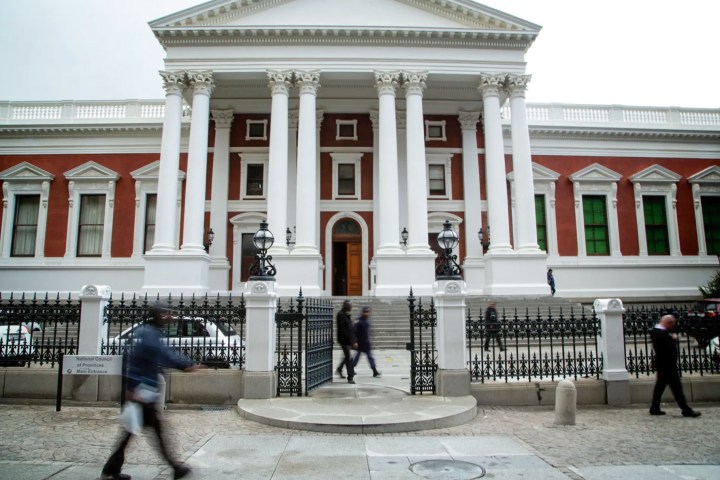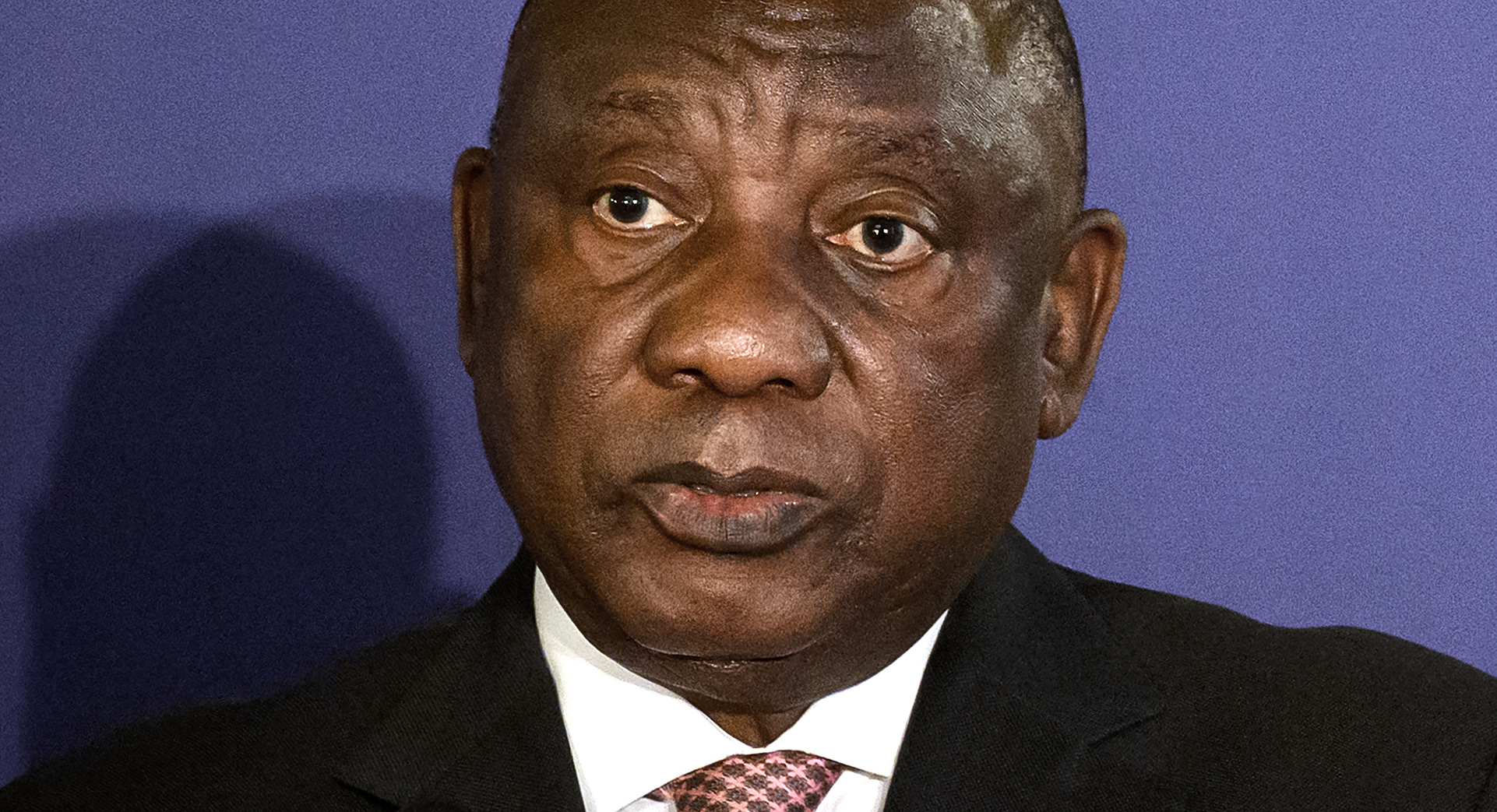LAW IN THE MAKING
Climate Change Bill heads for final stretch, but the hard slog of implementation lies ahead

All nine provinces adopted the Climate Change Bill without amendments on Thursday; all that remains is for the president to sign it into law.
“Finally, South Africa will have a law regulating our response to climate change,” said Danjelle Midgley, an attorney from the Centre for Environmental Rights (CER).
On Thursday, 25 April 2024, all nine provinces through the National Council of Provinces adopted the Climate Change Bill, leaving just the president’s signature outstanding to enact it into law.
JUST-IN: The NCOP has passed the #ClimateChangeBill
All 9 provinces voted in favour. The Bill was approved without amendments and will be sent to the President for signing and assenthttps://t.co/YscgO33HN4 pic.twitter.com/xFbY6jdzvi
— PMG (@PMG_SA) April 25, 2024
The Bill was formally introduced by Minister of Forestry, Fisheries and the Environment Barbara Creecy in February 2022 and the National Assembly passed it in October 2023.
Midgley acknowledged that while the Climate Change Bill “is not perfect, it’s a very important step”.
Read more in Daily Maverick: Is SA’s Climate Change Bill good enough? It depends on who you ask
“The real teeth will come in time, with the development of carbon budgets, sectoral emission targets, the GHG [greenhouse gas] emission trajectory, finance mechanisms and other measures set out in the Bill.”
The real teeth – regulations to come

President Cyril Ramaphosa still needs to sign the Bill into law. (Photo: Leon Neal / Getty Images)
Robyn Hugo, director of climate change engagement at Just Share, said that once the Climate Change Act came into force, “South Africa will, for the first time, have a law that is specifically aimed at developing an effective response to climate change”.
She added that, “this legislation is very overdue and, like a meaningful carbon tax on greenhouse gas emissions, has been significantly delayed and weakened by anti-climate corporate lobbying by fossil fuel companies and their industry associations”.
James Reeler, senior manager of climate action at WWF South Africa, told Daily Maverick that while the WWF was delighted the Bill was approaching the final stretch, “the hard part of implementation is still to come, so we urgently need regulations around carbon budgets and sectoral targets to be finalised”.
Carbon budget regulations are currently being drafted by the Department of Forestry, Fisheries and the Environment (DFFE) and are expected to come out before the end of this financial year. Once in play, companies emitting a certain quantity of GHGs will be allocated a carbon budget.
The Climate Change Bill does not prescribe any penalty – administrative or otherwise – if a company emits more than its carbon budget authorises it to.
Instead, the DFFE and National Treasury plan to amend the Carbon Tax Act, so that if companies exceed their carbon budget, they will be expected to pay a higher rate of carbon tax on those “excess” GHG emissions.
Just Share argues that this “outsourcing” of the consequence of a failure to comply with a carbon budget is wholly inadequate and could subvert the crucial goals of the Climate Change Act.
Hugo emphasised that anti-climate lobbying – which has consistently weakened and delayed necessary climate action to reduce emissions – had been prevalent in the finalisation of the Climate Change Bill and in the Carbon Tax Act – which was demonstrated by the Climate Change Bill’s not prescribing any penalty for the violation of carbon budgets.
“Unless carbon tax is set at a level that is an adequate disincentive to emissions, companies will exceed their budgets with impunity and emissions will keep increasing,” Hugo said.
To put this into context, to have the best chance of limiting global heating to 1.5° Celsius, climate science requires that global emissions be almost halved by 2030; instead, they are rising every year.
Climate Legal was the specialist climate change legal adviser to the government for the conceptualisation and drafting of the Climate Change Bill.
Andrew Gilder, c0-director of Climate Legal with Olivia Rumble, told Daily Maverick that in the six years since the Bill was gazetted in 2018, it had seen some changes, including as a result of negotiations under the National Economic Development and Labour Council (Nedlac), although the Bill today was probably about 90% the same as when it was initially gazetted.
Obvious differences between the 2018 version and the text that is anticipated to be signed into law include the provisions relating to offences and penalties – as alluded to by Hugo – and the section establishing the Presidential Climate Change Commission.
Why this Act is significant
“The Act will grant the DFFE minister very significant powers that will have important economic and industry-related consequences,” Gilder said.
For example, the Act will enable the DFFE minister to allocate carbon budgets and to set Sectoral Emission Targets.
“The cross-sectoral reach granted to the DFFE minister under the Act is necessary because climate change is an all-of-government concern,” Gilder said.
“In fact, dealing with climate changes is possibly the most acute governance challenge that any government faces today,” he said.
The Bill acknowledges South Africa’s international commitments made in terms of its Nationally Determined Contribution (NDC), which was initially agreed at the UN Climate Change Conference (COP21) in Paris in 2015, and updated in September 2021.
The NDC provides that for the period 2021–2025, the GHG emissions target will be in a range from 398–510 million tonnes of carbon dioxide equivalent (Mt CO₂-eq), and for the period 2026–2030 the target range will be from 350–420 Mt CO₂-eq.
The Act will also incorporate five of the six components of the national mitigation policy, except for the carbon tax, which are fundamental to the country’s future industrial development. They are:
- National GHG emissions trajectory;
- Sectoral emissions targets;
- Carbon budgets;
- GHG mitigation plans;
- Monitoring and evaluation; and
- Carbon tax (administered by National Treasury).
Gilder explained that by legislating for these components, the Act won’t suddenly impose a new set of requirements and obligations on the economy and industry.
“On the contrary, the Act will provide for a number of processes that have either been ongoing, either formally or informally.”
For example, the Pollution Prevention Plan Regulations are currently under the Air Quality Act and will likely evolve into the Greenhouse Gas Mitigation Plan regulations under the Act.
“One of my concerns over the implementation of the Act is that we seem to have a scenario in government where different departments have different views on the future of climate change governance,” Gilder said, tying it back to the idea that climate change is the ultimate governance challenge.
“From the position of an outside observer, some parts of the government appear to be in tension with other parts over how the national climate change response should unfold, particularly from the perspective of the future of fossil fuels.
“Notwithstanding these sorts of concerns, the Act is a very significant milestone in our climate change governance, and I look forward to seeing it signed into law as soon as possible.”
A contradiction of two Bills adopted
Midgley from CER noted that on the same day the Climate Change Bill was adopted by the provinces, so was the Upstream Petroleum Resources Development (URDP) Bill, which she said, “seeks to accelerate the fossil fuel industry – an industry which, globally, is largely responsible for the current climate emergency the world finds itself in today”.
Midgley noted that the URDP Bill stated: “The objects of this Act are to accelerate exploration and production, and maximise the economic recovery of petroleum for the benefit of the people of South Africa”.
She posed the question: “How is the UPRD Bill’s goal to accelerate oil and gas in South Africa compatible with our constitutional right to an environment that is not harmful to health or wellbeing?
“Or the findings of the scientists who contributed to the IPCC’s reports who agree that climate change, as caused by human activities such as the burning of fossil fuels, is leading to adverse effects such as significant warming, drought and an increase in the occurrence of natural disasters on a scale that is unprecedented?”
Reeler noted that while the UPRD Bill was adopted by all provinces, it wasn’t unanimously supported as was the Climate Change Bill.
He added: “It will be interesting to see the implications that the latter has on real target setting for gas exploration, bearing in mind that the evidence is that the world cannot afford any further exploitation of oil and gas beyond the currently active fields.” DM




















CO2 is plant food. Switch to nuclear power if you actually want reliable electricity.
Maybe consider looking at things plants need beyond CO2 like water (hard to come by in more frequent droughts); temperature ranges they’re adapted to (more frequent, severe and longer lasting heatwaves will be a problem); and soil micronutrients (less available in stressed soils and reduced uptake in high temperature, high CO2 situations).
Your Grade 3 understanding of plant biology will not suffice. That aside, I’m with you on building as much latest generation nuclear as we can afford as soon as possible.
OK, but not the out-dated monsters that Zuma/Rosatom would have inflicted on us. The much smaller and more flexible modular reactors may in due course have a role to play in the energy mix.